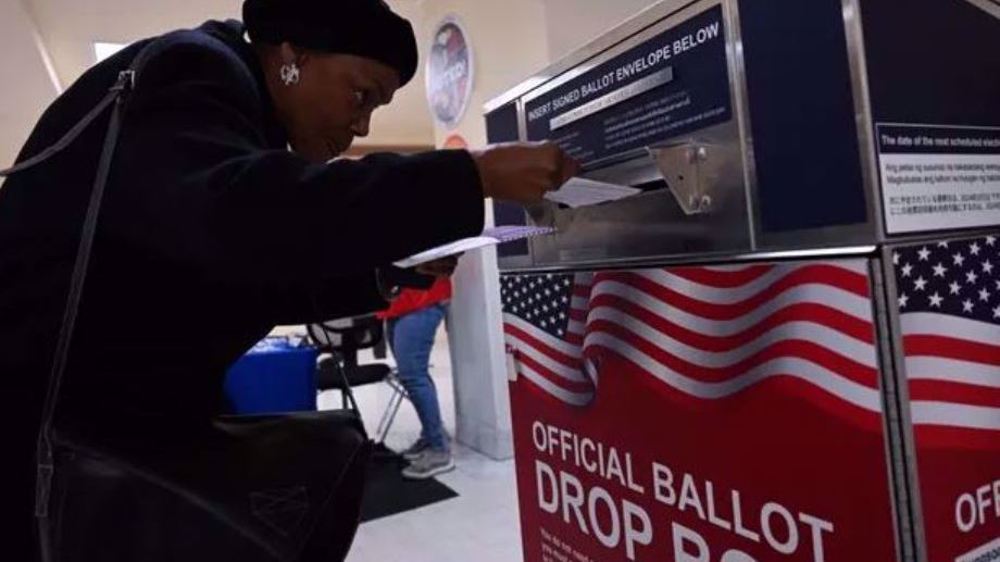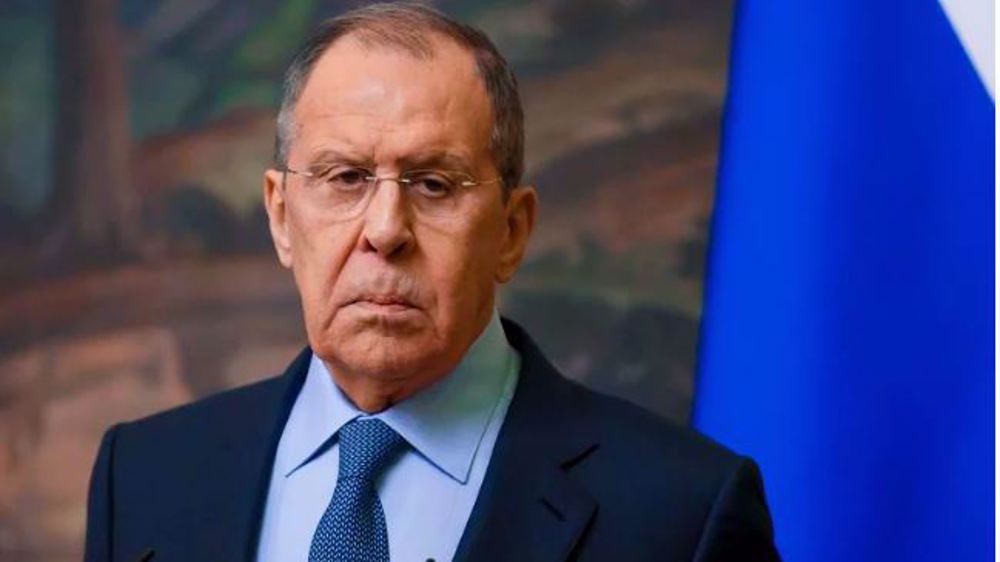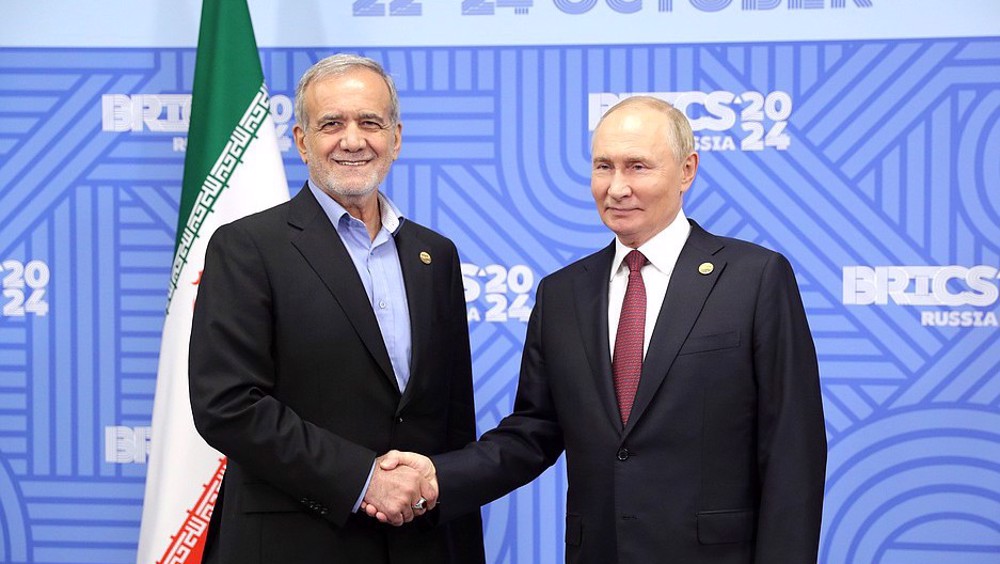Navalny case: Russian opposition figure shares photo, says breathing unaided
Russian opposition figure Alexei Navalny who has been at the center of a dispute between Russia and Western countries over allegations that he was poisoned in Siberia last month, has shared a photo of himself and his family on Instagram, saying he is now able to breathe unaided.
"Hello, this is Navalny," he said in the caption of a photo of himself, his wife and their two children in the Berlin hospital where he has been receiving treatment.
"Yesterday I was able to breathe on my own all day," Navalny said in his first social media post since the alleged poisoning incident.
"I really liked it. It's an amazing process and underestimated by many. I recommend it," he joked.
A Monday report by The New York Times cited a senior German security official as saying that Navalny had spoken to a German prosecutor about what he claims was an attempt on his life and said he planned to return to Russia as soon as he recovered.
“He’s fully aware of his condition, he’s fully aware of what happened and he’s fully aware of where he is,” added the official, speaking on condition of anonymity.
Navalny remains heavily guarded by German police in the hospital, according to the US-based daily, which further cited the official as claiming that he had refused to cooperate with a Russian request to jointly probe the case with Germany in his conversation with the German prosecutor.
Noting that Navalny planned to return to Russia, the official said, “He’s not planning to go into exile in Germany. He wants to go home to Russia and he wants to continue his mission.”
The Charite Hospital announced that Navalny's condition continued to improve, saying, “The patient has been successfully removed from mechanical ventilation. He is currently undergoing mobilization and is able to leave his bed for short periods of time.”
Meanwhile, Russia on Monday censured Germany’s refusal to share with Moscow the details of its medical treatment of Navalny and Berlin’s referral of the case to the Organization for the Prohibition of Chemical Weapons (OPCW).
“Sorry, this is just some real evasion, to put it mildly,” Russian Foreign Ministry spokeswoman Maria Zakharova said during an interview with the local Rossiya-1 broadcaster on Monday. “But given the resonance and the sensitivity of the issue that we are all observing now, to be honest, I would like to pick up a stronger expression, because this is impossible.”
The remarks came after statements by German Foreign Minister Heiko Mass that OPCW experts had taken samples of Navalny at Berlin’s Charite Hospital and that Moscow, as a member of the organization, could forward its requests regarding his case to The Hague-based agency.
Also on Monday, German government spokesman Steffen Seibert said Germany and the OPCW had advanced in joint work on the alleged poisoning case and “received the undeniable results of the special laboratory of the Bundeswehr (the German military).”
“We renew our call for Russia to explain these events,” Seibert added.
Zakharova said, “If there are serious facts, and they tell us these are real facts, and there is a request from the respective law enforcement agencies, then what could be more common, simple, true, honest, and right than to just hand them over to the Russian side?”
“Unfortunately, the chain of these strange things is not going to break,” she said.
Navalny was taken to a local hospital in the Siberian city of Omsk on August 20 after collapsing on a domestic flight. He was airlifted to Germany on August 22.
On September 2, the German government claimed that Navalny had been poisoned with a Novichok-family toxic agent. Berlin further claimed on Monday that three EU laboratories, including those in France and Sweden, had confirmed its test results for the Russian blogger.
Russia has said that tests on Navalny’s blood samples during his stay at the hospital in Omsk were negative, and that Germany should provide the details of its own tests on the opposition figure.France, Germany urge Russian cooperation
Meanwhile, Germany and France also called on Russia on Monday to cooperate and probe the case after the laboratories in France and Sweden allegedly confirmed that he had been poisoned with a nerve agent.
Russian Foreign Minister Sergei Lavrov, however, accused the West of using the incident as a pretext to impose additional sanctions on Moscow.
French President Emmanuel Macron’s office also declared in a statement after holding a phone conversation with his Russian counterpart, President Vladimir Putin, that Moscow had to provide explanation.
“The president expressed his deep concern over the criminal act perpetrated against Alexei Navalny and the imperative that all light be shed, without delay, on the circumstances and responsibilities of this attempted assassination,” Macron’s office said, referring to the French president.
The Kremlin issued its own readout of the phone call, saying that Putin told Macron that it was “inappropriate” to make groundless accusations against Russia in the case and that Moscow wanted Berlin to hand over the medical test results taken from the opposition figure.
VIDEO | Press TV's news headlines
Iranian satellites launched into space as private sector debuts in space industry
VIDEO | Iran, Azerbaijan conduct joint maritime rescue operations
VIDEO | Yemen’s Red Sea divide: Naval forces block Israeli-linked ships in strategic ‘parting of the water’
VIDEO | Southern Gaza: Israel’s facade for famine and suffering
VIDEO | IOF hampering humanitarian aid
VIDEO | Sharmahd: Justice Done
Iran repeatedly warned Israel not to test its will: FM














 This makes it easy to access the Press TV website
This makes it easy to access the Press TV website